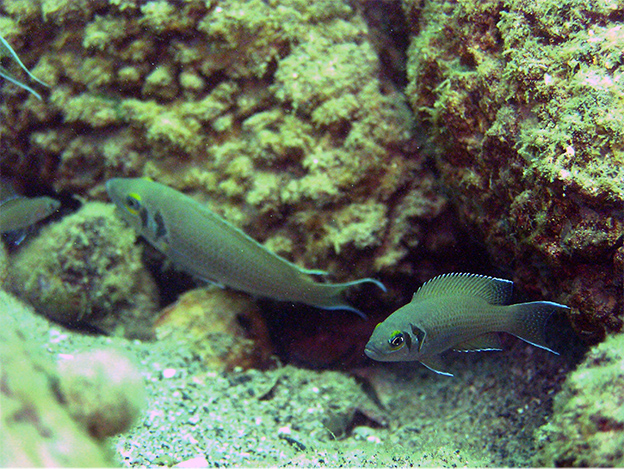Hormones may help tiny African fish climb social ladder

The small freshwater cichlid, native to east Africa's Lake Tanganyika.
Want to work your way up the corporate or social ladder?
You’ll probably need to be a little aggressive, work hard and make lots of friends.
Surprisingly, things aren’t that different for the tiny freshwater fish known as a cichlid.
Native to east Africa’s Lake Tanganyika, cichlids live in complex social communities with strict hierarchies and rules. Those at the top of the social order are the only ones that breed, for example.
Cichlids even exhibit dominant and submissive behaviours in order to keep the peace and avoid fighting in the community.
“They’re a remarkably social fish,” says Adam Reddon, formerly a grad student in Sigal Balshine’s Aquatic Behavioural Ecology lab, and now a postdoctoral fellow at McGill.
While at McMaster, Reddon and a team of researchers (collaborating with a team in Poland) studied the effects of two hormones – the fish versions of oxytocin and vasopressin – on the social behaviour of cichlids.
The hormones are important regulators of social behaviour in mammals, but little is known about their role in governing the behaviour of fish.
The researchers found that the hormones may in fact play a role in the complicated social hierarchies of cichlids, by impacting their aggressive and submissive actions and causing them to spend more or less time with other fish in their networks.
The work expands scientists’ knowledge about cichlids’ social structures, but it also helps them better understand the process of evolution.
“We’re looking at the bigger picture and asking, ‘What is evolution acting on?’” says Reddon. “How is selection working on social behaviours? It’s about our fundamental understanding of animal populations.”
The work was recently published in the journal Royal Society Open Science.

